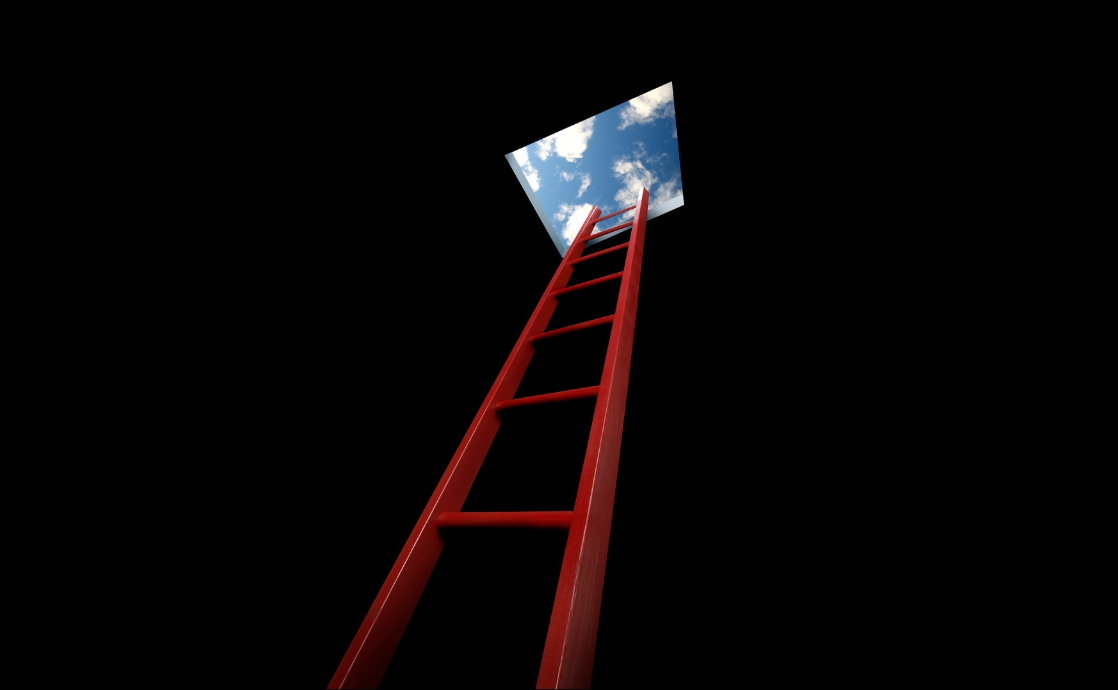The views expressed in our content reflect individual perspectives and do not represent the authoritative views of the Baha'i Faith.
We’re all human, so from time to time, we despair, losing our optimism and hope. Even the messengers of God felt despair, as Shoghi Effendi reminded us in this letter written on his behalf:
We must not only be patient with others, infinitely patient!, but also with our own poor selves, remembering that even the Prophets of God sometimes got tired and cried out in despair!
So how can the Baha’i Faith help with these feelings of deep despair?
RELATED: The Ultimate Remedy for Fear
The Baha’i teachings encourage everyone, whether they’re Baha’is or not, to nurture their spiritual lives through daily prayer, meditation, and the study of sacred texts. This spiritual foundation can provide a sense of purpose and inner peace, which helps counter the despair caused by our culture’s primarily materialistic pursuits.
For example — here’s a prayer from Abdul-Baha I like to say:
In the darksome night of despair, my eye turneth expectant and full of hope to the morn of Thy boundless favor and at the hour of dawn my drooping soul is refreshed and strengthened in remembrance of Thy beauty and perfection.
The Baha’i Faith places a strong emphasis on selfless service to others and the betterment of society, focusing on community building and even civilization building. Finding the time and energy to engage in such acts of service can also help us transcend materialistic values as we redirect our focus toward the well-being of others. This shift fosters a sense of fulfillment and purpose.
Each Baha’i is part of a global Baha’i community that values unity and inclusivity. Being part of that unified community provides a sense of belonging and support, countering the isolation often associated with materialism. Baha’is can go anywhere in the world and participate in the same core activities — devotional gatherings, study circles, junior youth programs, or children’s classes, all using the same curriculum. Participation in regularly scheduled community events, such as the Baha’i 19-Day Feast and the Baha’i Holy Days, can foster deep, meaningful friendships with others.
The Baha’i teachings encourage contentment and moderation in all aspects of life, including material wealth. Baha’is are urged to detach themselves from excessive material desires, and to find contentment in simpler, less possession-centered lifestyles. This approach mitigates the negative impact of materialism and promotes a balanced, fulfilling life. Abdul-Baha said: “Content thyself with but little of this world’s goods!”
I’ve always loved this story, relayed by Shoghi Effendi, the Guardian of the Baha’i Faith, in his book God Passes By:
“I, myself with two others,” he [Nabil, a Baha’i historian] relates, “lived in a room which was devoid of furniture. Baha’u’llah entered it one day, and, looking about Him, remarked: ’Its emptiness pleases Me. In My estimation it is preferable to many a spacious palace, inasmuch as the beloved of God are occupied in it with the remembrance of the Incomparable Friend, with hearts that are wholly emptied of the dross of this world.’” [Baha’u’llah’s] own life was characterized by that same austerity, and evinced that same simplicity which marked the lives of His beloved companions. “There was a time in Iraq,” He Himself affirms, in one of His Tablets, “when the Ancient Beauty [one of Baha’u’llah’s titles] … had no change of linen. The one shirt He possessed would be washed, dried and worn again.”
“Many a night,” continues Nabil, depicting the lives of those self-oblivious companions, “no less than ten persons subsisted on no more than a pennyworth of dates. No one knew to whom actually belonged the shoes, the cloaks, or the robes that were to be found in their houses. Whoever went to the bazaar could claim that the shoes upon his feet were his own, and each one who entered the presence of Baha’u’llah could affirm that the cloak and robe he then wore belonged to him. Their own names they had forgotten, their hearts were emptied of aught else except adoration for their Beloved …. O, for the joy of those days, and the gladness and wonder of those hours!”
RELATED: Overcoming Adversity by Building Resiliency
I believe that when the Baha’is allow our ethical and moral principles to guide our daily lives, we’re helping to usher in the new world order envisioned by Baha’u’llah. Living in accordance with these principles helps us maintain our integrity and values in a materialistic culture — while also reducing the risk of moral despair.
The link between despair and materialism are undeniable. By embracing the Baha’i teachings, and relying on the grace of God, I believe we can break free from the chains of materialism and find lasting happiness and fulfillment in a life centered on spiritual values and meaningful connections with others. Knowing that, I am grateful!
You May Also Like
Comments

















As I always say never let your possessions own you. It’s interesting that we are entering the era of the sharing economy.